IDF reveals it has been conducting secret raids in Lebanon for MONTHS and foiled Hezbollah’s plan for 3,000 militants to massacre Israelis in the days after October 7.
The IDF has revealed that it has been carrying out secret raids in Lebanon for months and even foiled a plan by Hezbollah for 3,000 militants to massacre Israelis in the days after October 7.
As the Israeli army officially launched its ground operations in Lebanon early this morning, IDF spokesman Admiral Daniel Hagari announced today that it has already carried out more than 70 smaller attacks with special forces since the start of the deadly war.
It claimed to have destroyed several Hezbollah positions, tunnels and thousands of hidden weapons that could have potentially been used by the Iran-backed terror group to invade Israel.
According to the IDF, in raids in recent months, troops have secretly reached around 1,000 Hezbollah locations in southern Lebanon, including tunnels and bunkers, both in Lebanese villages and forest areas.
‘Hezbollah has dug tunnels under houses in these villages close to the border with Israel. Tonight we release a series of IDF operations conducted since the beginning of the war aimed at dismantling Hezbollah’s terrorist infrastructure and capabilities in the area of the Israel-Lebanon border. Hagari said.
The IDF announced today that it has carried out more than 70 small raids with special forces in Lebanon since the start of the deadly war.
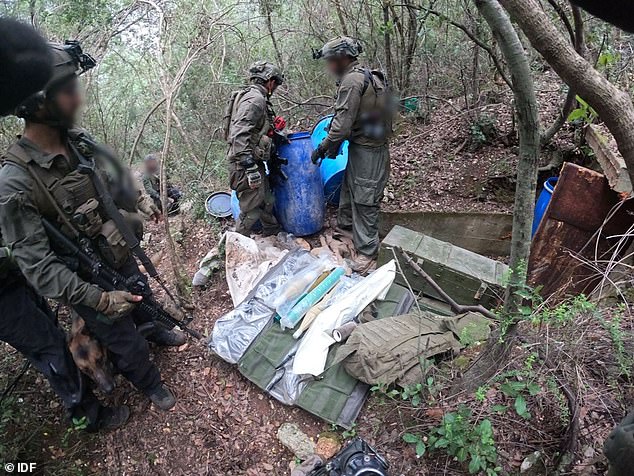
Footage shared by the IDF today showed soldiers exploring Hezbollah tunnels, which were packed with weapons
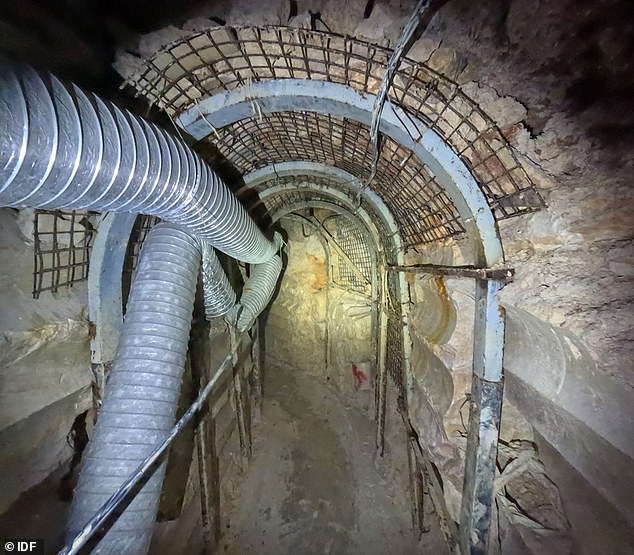
During their operations, the IDF uncovered tunnel shafts, weapons, operational posts and storage facilities
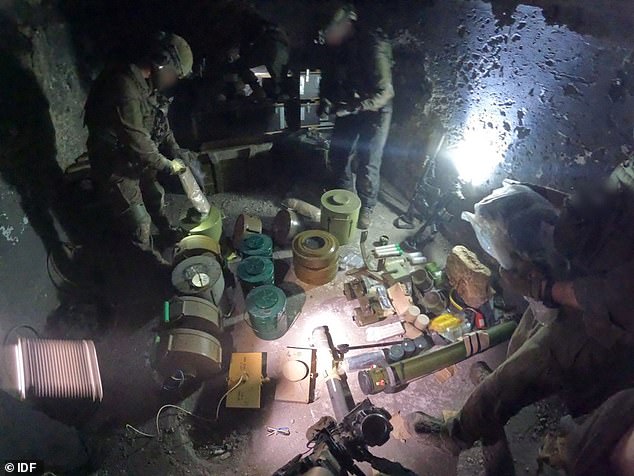
The Israeli military said soldiers identified and breached “underground entry points” near the border area
During these operations, IDF special forces entered Hezbollah complexes at dozens of locations along the border with Israel and gathered intelligence while dismantling their weapons.
Israeli soldiers have sneaked into Hezbollah’s underground tunnels, uncovering the militant group’s hidden weapons caches and seizing and destroying its weapons, including advanced Iranian-made weapons.
The IDF shared footage of the covert operations, captured by body cameras of IDF soldiers, as Hagari made his defiant statement, showing Israeli soldiers forcing their way through deep tunnels and dragging out weapons and boxes of other weapons.
“In total, IDF soldiers exposed and dismantled more than 700 Hezbollah terrorist units during these operations,” Hagari said.
The military spokesman revealed details of three similar special operations, including one that took place in Meiss El Jabal – a Lebanese village close to the border with Israel, and just a few hundred meters away from the Israeli town of Qiryat Shemona.
Hagari said many residents of the Lebanese village had fled due to Hezbollah’s terrorist activities, but as part of the operation the IDF gathered information about a house close to the border that was being used by militants to dig underground infrastructure beneath it.
According to Hagari, the house would be used as a “preparation area” before Hezbollah attempted to invade Israeli territory.
During the operation, troops carried out a targeted attack on the house and revealed that a large quantity of weapons had been stored there.
And in the basement, soldiers discovered a raised platform built to conceal a shaft leading to an underground tunnel 150 meters long.
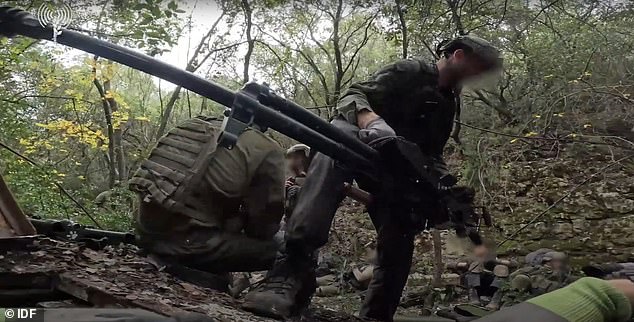
Footage captured IDF soldiers dragging Hezbollah weapons from an underground lair in Lebanon
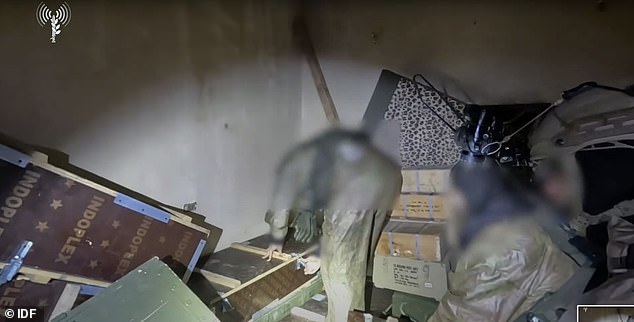
Special Forces soldiers searched a Lebanese home and discovered tunnel entrances under furniture
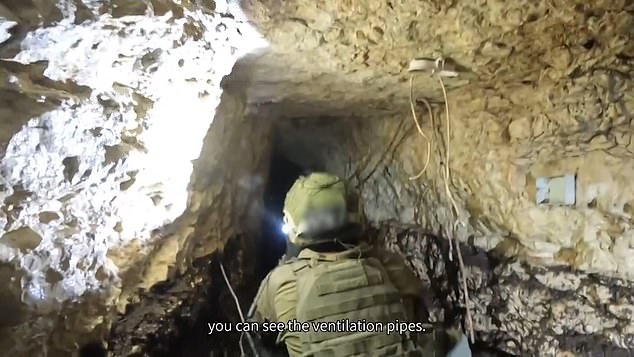
Many of the tunnels were dug out of stone when the IDF discovered them during their covert operations
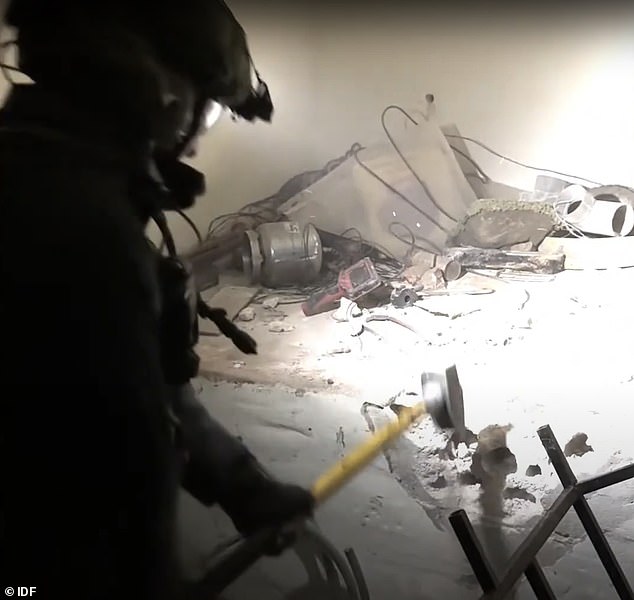
You could see soldiers tearing down walls to expose the hidden tunnel systems
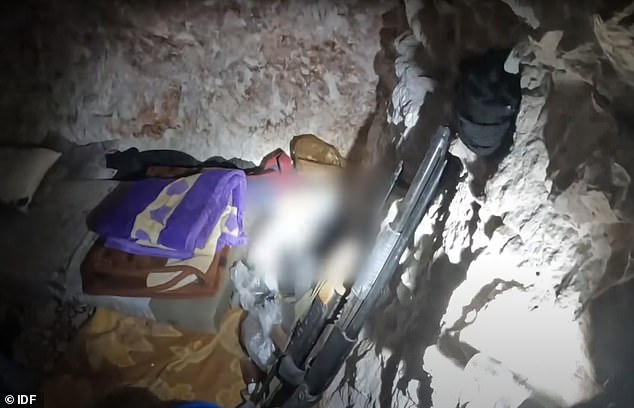
In one operation, a Hezbollah living quarters was found among the weapons
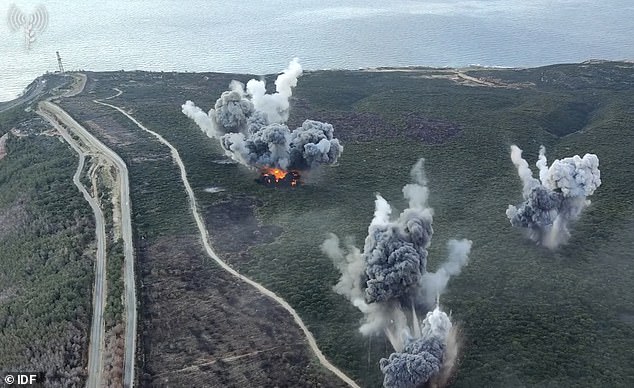
According to the IDF, the houses, tunnels and weapons storage facilities were subsequently destroyed in joint ground and air strikes
The IDF then dismantled the house and tunnel in a joint ground and air attack, Hagari said.
A similar operation was carried out in the Lebanese village of Kfarkela, close to the Israeli border, and in the town of Metula – one of the most heavily attacked Israeli communities in the past year.
The IDF was following “precise intelligence” about an underground tunnel that Hezbollah was using to hide weapons.
During scans in the children’s room in a house in Kfarkela, soldiers found the 100-meter-long tunnel dug in stone under a small bed, and inside the tunnel they discovered weapons stored in barrels.
After the operation, the house, tunnel and weapons arsenal were destroyed in a ground and air raid.
The latest example took place in the Lebanese village of Ayta ash Shab – where IDF forces have hit hundreds of Hezbollah targets since the start of the war, including military outposts, rocket launchers and weapons storage facilities.
“Using covert technological means, we identified the Hezbollah complex and the preparation area built near the village… including a system of combat trenches above and below ground,” Hagari revealed.
The network of trenches was connected to an underground tunnel that housed a weapons depot, a command and control center and a living quarters for Hezbollah militants.
The tunnel root went deep underground towards the Lebanese village, and at the end of the operation the entire infrastructure was blown to pieces during joint ground and air operations conducted by the IDF.
“The operations we released tonight are just a small number of dozens of operations that will be revealed in the future,” Hagari said.
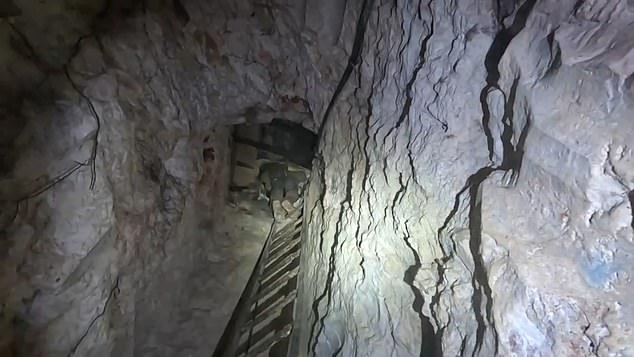
Some tunnels were approximately 150 meters long before being dismantled by the IDF.
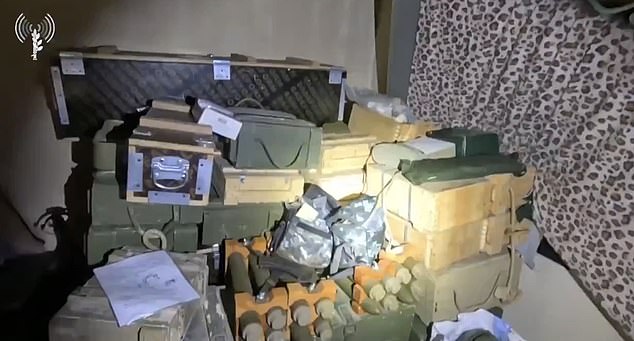
Weapons caches were discovered at the sites, which soldiers later destroyed
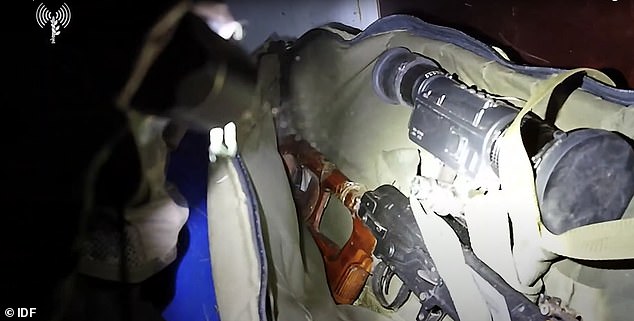
Guns and other weapons were hidden in weapons storage facilities in the underground areas
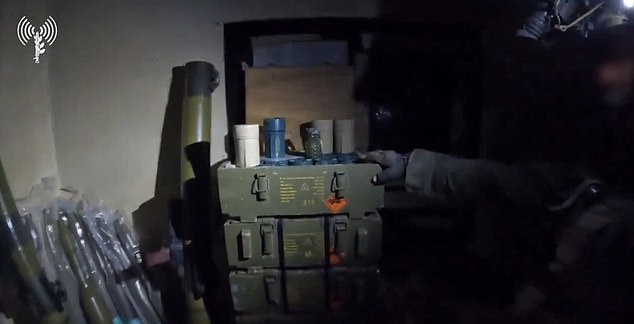
The inside of an underground Hezbollah tunnel IDF forces entered Ayta Ash Shab, South Lebanon
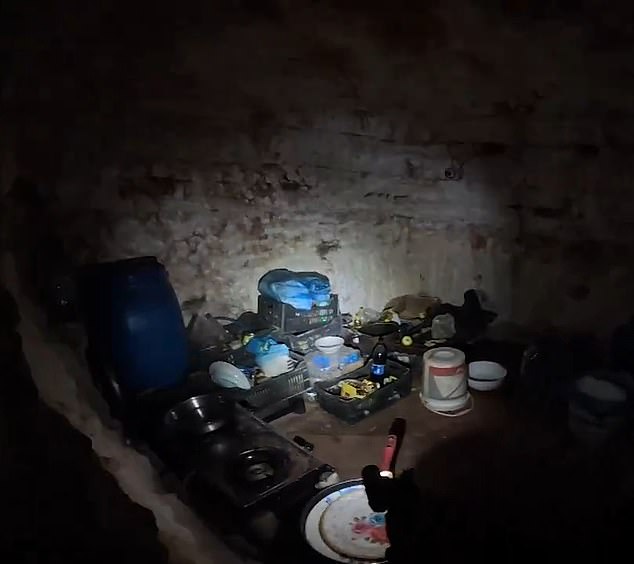
During the operations, objects used by Hezbollah militants to live in the underground tunnels were also found
These covert attacks have been carried out since the beginning of the war between Israel and Hamas, after the IDF said it had managed to push back Hezbollah’s elite Radwan force from the border area, allowing Israeli commandos to enter Lebanon almost unnoticed.
There were no direct clashes with Hezbollah operatives during any of the raids, the IDF said.
According to IDF assessments, some 2,400 Radwan terrorists and another 500 Palestinian Islamic Jihad terrorists – trained by Radwan – were in villages in southern Lebanon waiting to attack Israel in the days after Hamas’s October 7 massacre in the south of Israel.
Anticipating an invasion from Lebanon and strengthening its defenses, the IDF’s Northern Command carried out several attacks on Hezbollah operatives and locations along the border in the following weeks, causing the thousands of Radwan terrorists to retreat several kilometers.
The raids carried out by IDF commandos, including combat engineers, sometimes lasted three to four days and a total of 200 nights of operations were carried out, according to the military.
The IDF determined that while its commando operations were successful, this was not enough to achieve Israel’s latest war objectives – allowing the north’s displaced residents – of whom there are approximately 60,000 – to return to their homes.
It said its air force and artillery were supporting ground forces involved in “local and targeted ground attacks” against Hezbollah in southern Lebanese villages.
Military officials have said they aim for the offensive to last as short as possible, even just a few weeks.
Israeli officials have insisted the raids will be limited in scope, adding that they do not plan to launch a ground attack on Beirut or occupy parts of Lebanon.
The IDF did not intend to remain in southern Lebanon, but instead plans to strengthen its defense and surveillance on the border following the ground operation against the terror group, and ensure that Hezbollah does not return to the area.
